The fun factor doesn’t really go away, say For All Mankind’s producers
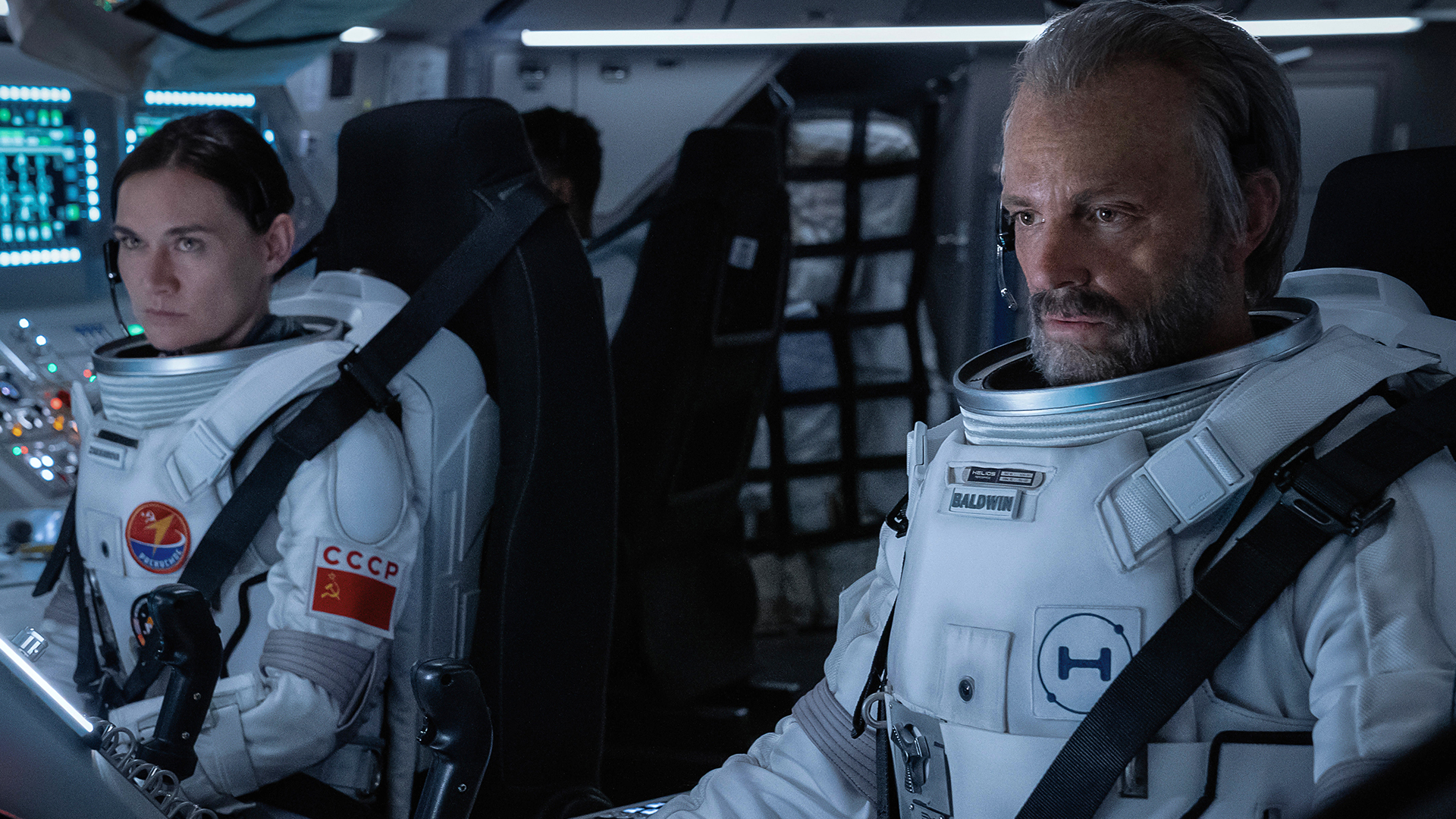
For All Mankind’s fourth season takes the alternate history space drama into a bold new decade – the 2000s. Series fan Steve Newall finds out more about the new season, chatting with executive producers Ronald D. Moore and Maril Davis, and former astronaut and technical advisor Garrett Reisman.
This interview has been edited for length and clarity.
Launching in 2019 with an intriguing premise, Apple TV+’s For All Mankind has charted a captivating alternate history of space exploration. Both celebrating the past and excitingly diverging from it, the show has boldly moved from head-scratching thought experiment (its starting point—”What if Russians were first to the moon?”) to chronicling an exciting what-might-have-been 20th century of space exploration. Alongside this different path taken into orbit and beyond, a myriad of ripple effects on geopolitics and culture, amplified over time.
In the early stages of conceiving the show, creator Ronald D. Moore (Battlestar Galactica) had considered a straighter drama, according to former NASA astronaut Garrett Reisman, now For All Mankind’s technical advisor. In the show’s own “what might have been,” Moore was also thinking about a behind-the-scenes look at the lives of people working on the Apollo Program of the 60s and early 70s, according to Reisman: “kind of like Mad Men, if you will, but set at NASA instead of on Madison Avenue”. Reisman’s eyes lit up when hearing Moore’s other idea of an alternate history, though, to whom he shared his own experience of seeing Russian hardware that had been developed for their lunar program. According to Reisman, Russia was much closer to getting to the moon first “than I think we ever, ever knew”.
Now, as the series enters its fourth season, a permanent manned lunar base has been joined by an expanding multinational settlement on Mars—as well as a new global interest in capturing and mining an asteroid. And, with the show executing another of its now-trademark time jumps between seasons, For All Mankind’s new episodes are set in 2003. With their show now just two decades behind our present, executive producers Ronald D. Moore and Maril Davis continue to chart a path that shows how far we might have literally and figuratively traveled if key moments happened differently—and as the show feels increasingly contemporary, continues to offer an optimism for what could still be achieved within our lifetimes.
Human emotion and drama have provided as much propellant for For All Mankind’s storytelling as its explorations of history, technology and geopolitics. For some, this dimension of the show can be too cheesy, or soapy. And while I acknowledge that response, the show is so damn good at it that it adds a hugely effective counterpoint to its more intellectual aspects.
Sometimes, as in season four, everything dovetails, bringing a relatable, human dimension to For All Mankind’s “what ifs?”. But unusually—even for science fiction, which has a history of echoing the present—there’s a heightened sense of contemporary relevance in one of the major plotlines of season four. With Hollywood strikes still unresolved while watching these new episodes, the parallels (and irony) of a streaming service’s flagship show sympathetically depicting workers campaigning for fairer conditions and pay won’t be lost on viewers—even if it’s not an intentional reflection on current industry events.
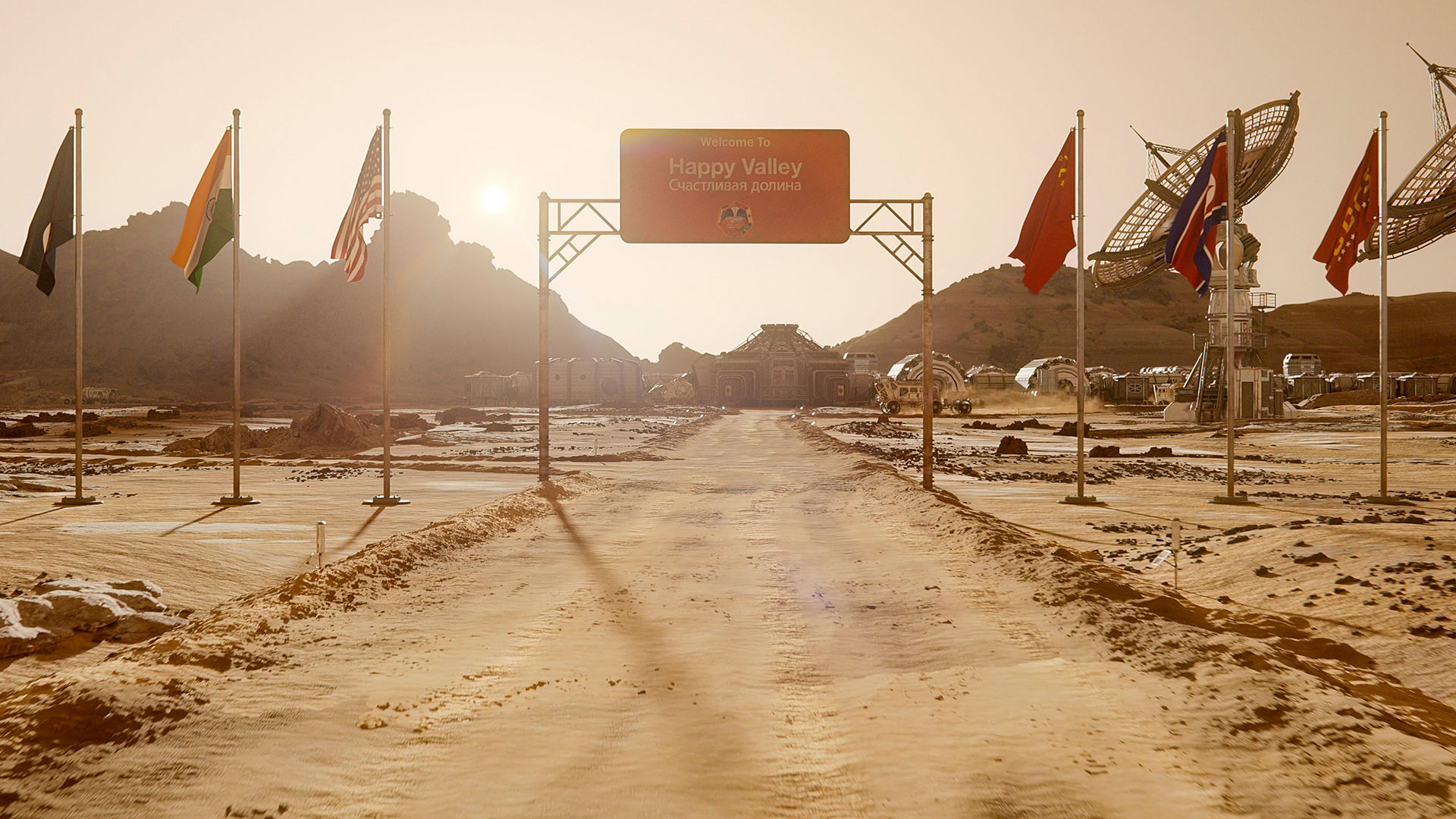
“It certainly wasn’t something we knew was going to happen when we developed the storyline,” creator and executive producer Ronald D. Moore tells me. “You know, that is just a coincidence of history.” That storyline grew organically, he explains, as they gave thought to what would happen with a new labour pool on Mars that was made up of civilians, as opposed to astronauts—people that had come up there to do a job and would have a different set of expectations and a different set of priorities.
Moore sketches out the questions that came to mind: “So as you start getting into the upstairs-downstairs of it all, well, the miners, and the workers, who’s paying them? How much are they getting paid? And who determines that? Well, that’s Helios, that’s a private company, a corporation. They can change the terms of employment whenever they want to, and what happens when they do that, and what happens when the miners don’t like their working conditions, and realise that they’re a key component in this massive undertaking that, you know, millions and millions of dollars, billions of dollars, are being spent on? And if they refuse to work, what happens?”
Some of that feels awfully familiar right now. For Moore, it became a fascinating moment of drama to tell. “It was something we thought was really worth exploring in the show,” he says. “We had no idea that it was going to premiere when it does in the aftermath of one strike, and still in the middle of another one”.
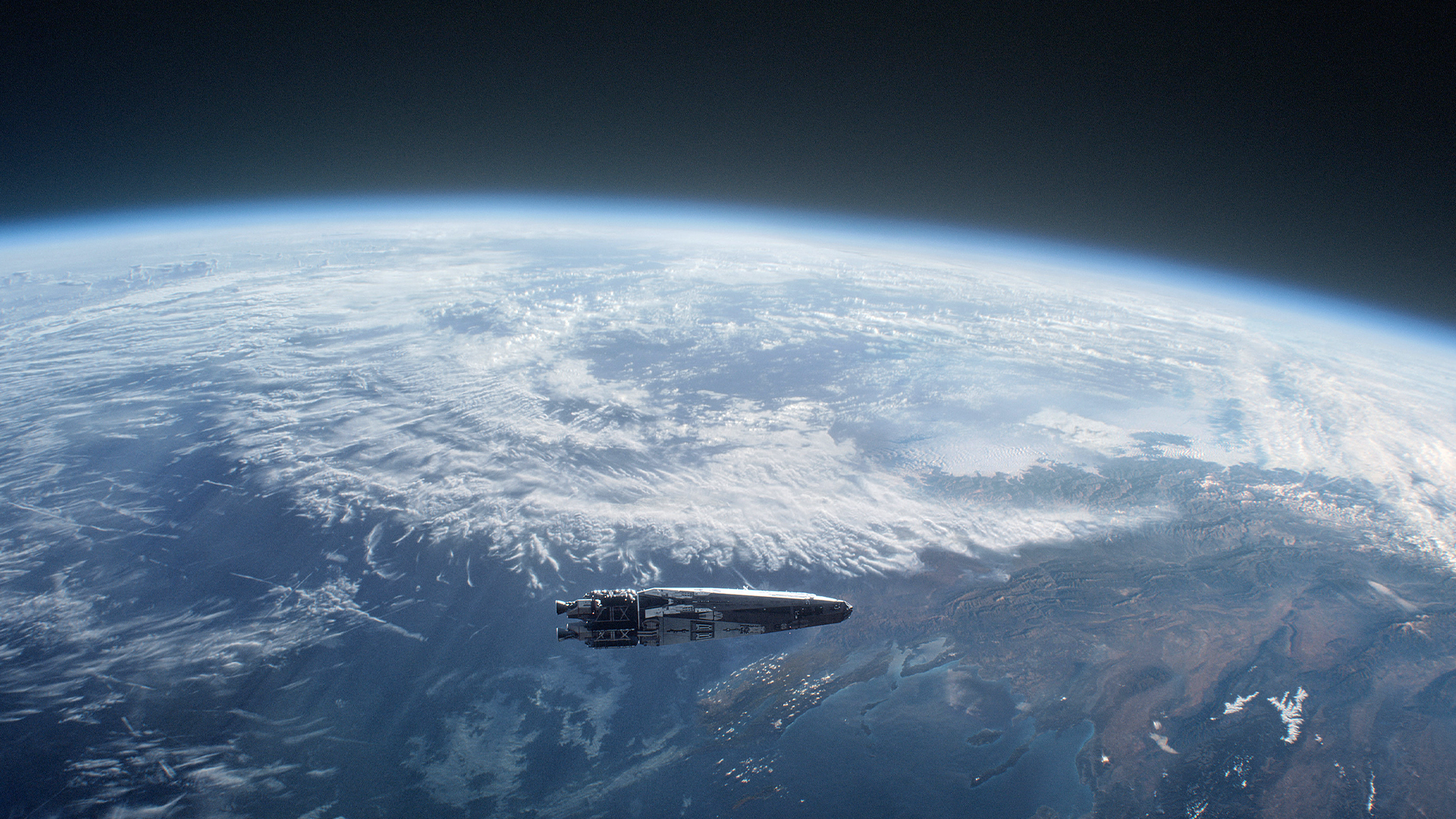
As the show’s divergence from historical reality becomes greater, For All Mankind finds itself moving beyond a national or global focus, and looking at the creation and implications of new political structures untethered from our Earthbound experience. When we go out into space in a much bigger way, with established settlements exploiting the resources of other planets or asteroids, who gets them? Who controls what, and what laws govern this?
“I think these are issues that people on Earth have just sort of ignored and kicked the can down the road,” Moore says. “Oh, we’ll deal with that… someday. Well, someday is coming. And these issues are going to come up. And it feels like it’s really ripe for the show to explore in our drama, because these characters will be dealing with those issues on a day-to-day basis.”
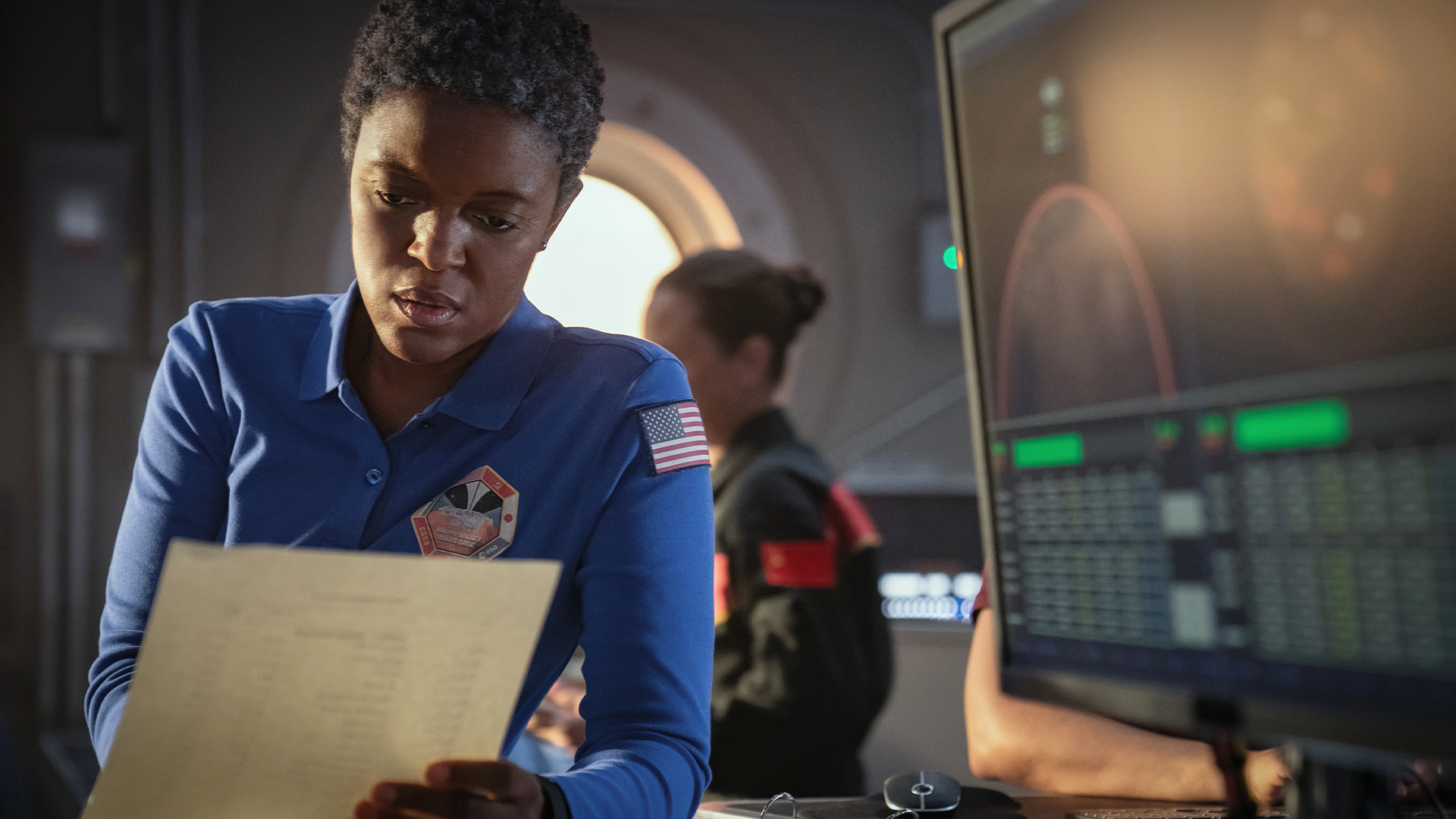
As well as the show’s depiction of space exploration, For All Mankind also relishes hashing out what’s changed or stayed the same in the show’s alternate geopolitical and social history. Public figures survive assassination, election results go differently, queer and minority representation scales new heights—and sometimes era-defining pop songs just stay era-defining. These are concepts that Moore had previously explored at Star Trek. “There was a lot of discussion about alternate histories and time travel that would change history or alternate dimensions”, he recalls. “So I played around with a lot of these ideas previously and I really enjoyed it.”
Describing himself as an amateur historian, Moore’s always loved speculation about what things would be like if one or two events had just happened slightly differently. “You know, how does World War II go? Or how does the First World War change? Or, you know, does Vietnam not happen if, if Kennedy lives?”
Moore’s fascination with the great what-ifs of history as storytelling opportunities is echoed by fellow For All Mankind executive producer Maril Davis. Citing the butterfly effect, Davis notes how fascinating it is to think about changing one thing, even something very, very small. “It’s fun tracing the tiny or larger ripples,” Davis says.
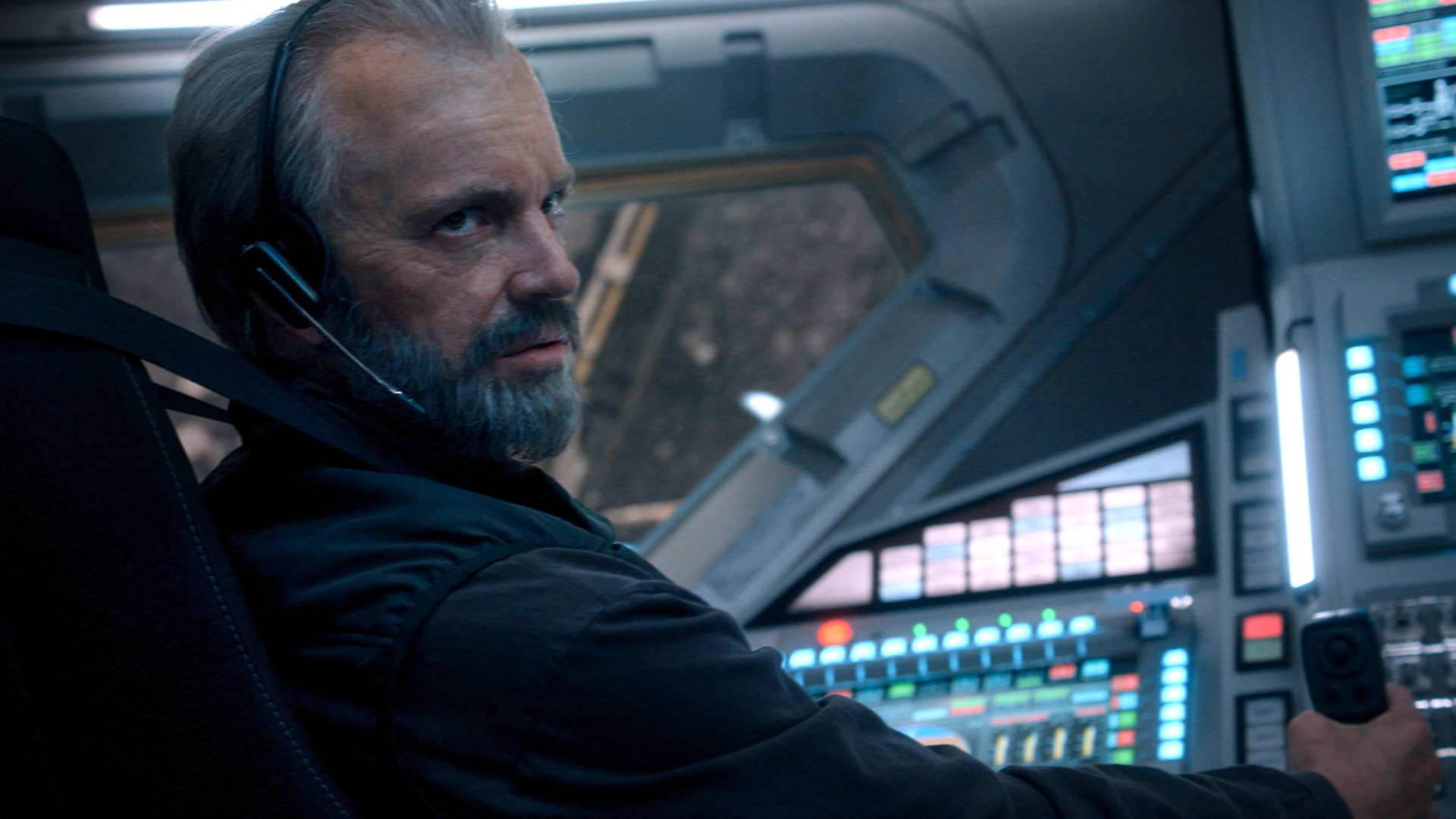
Garrett Reisman describes his role as the show’s technical advisor as being easier in the first two seasons, as the show was still dealing with something based on historical fact. Events may have been happening faster than in our reality, but the technology was still the same as in our real-life history. Now, as the show goes beyond what we have actually accomplished, Reisman says it’s getting more complicated: “We still try to keep it grounded in historical precedent,” he explains. “Not only historical precedent, but also the precedent we’re creating in our alternative universe in our show.”
“We are getting to the point now where we are intending to take more liberties and say, ‘Well, in our alternative universe, maybe this thing that we can’t do today is actually possible, even twenty years prior,’” Reisman says. It’s becoming more challenging for Reisman to keep that connection to the reality of his own astronaut experiences, but he acknowledges that at the same time, it’s also liberating from a creative standpoint. “So it’s good and bad, I guess, from my perspective.”
One of the trademarks of the show has become its time jumps between seasons. They’re a useful tool for advancing the storyline when space exploration is a years- or decades-long process, and have also offered a rapid-paced and exciting start to each season since their introduction. Season one opened with news footage of JFK, setting the scene for the real-life space program of the 1960s. Moore credits an unnamed Apple exec for suggesting this also feature in season two: “He’s actually the one that said to me ‘I hope you open season two with a little montage like season one where you kind of set the stage and talk about things that have happened in between the seasons.’” Thinking this was a great idea, Moore brought it back to the writers room, and then they’ve done it every season, something Moore describes as a hallmark of the series.
Davis, too, finds the era-setting montages a lot of fun, citing Prince Charles marrying Camilla instead of Diana as an example. “It seems like a small thing,” Davis says, “but actually it would have had quite a change in history. We don’t know exactly where it would have went and, you know, we didn’t follow through. But that kind of thing is so much fun to think about and ruminate on.” Clearly these thought experiments are fun for the creatives able to carry them out on this larger scale—and it’s a pleasure for the viewer, too.
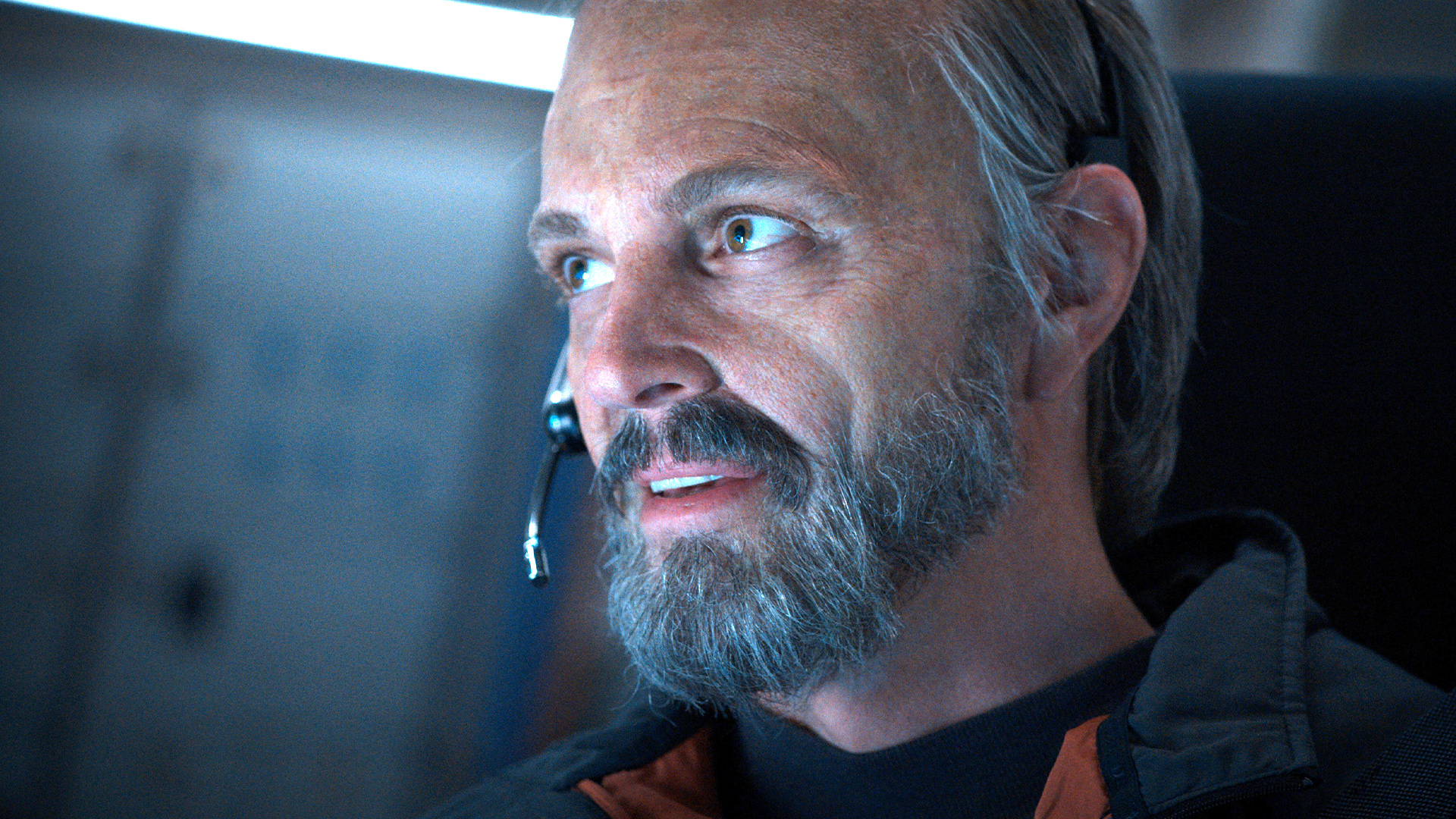
While they present great storytelling opportunities, the show’s time jumps—of about a decade per season—also offer an uncommon opportunity for the show’s cast. Five years have elapsed since the show started filming—but over fifty have elapsed on screen. While For All Mankind has certainly had its share of heroic and tragic deaths, a couple of key cast members have survived (so far), with Joel Kinnaman’s Ed Baldwin and Wrenn Schmidt’s Margo Madison still playing key characters.
When the cast signed up for the show, did they anticipate that some of them would end up being aged decades and decades beyond their actual Earth years at some point? Moore tells me that he shared the concept of the show with most, if not all of the original cast—that it was a multi-generational show.
“Some of them we told early on, ‘Here’s your storyline going forward over several decades,’” Moore explains. “And others, we just said, ‘We’re going to age you over this. And maybe we don’t know what the storyline is yet’. But they all knew what the concept of the series was. And they were all sort of intrigued because it was a unique acting challenge, that every season they show up, they have to be ten years older.” Not only that, but their characters have gone through a whole decade of experience that the show hasn’t dramatised on screen. According to Moore, having to internalise this and include it in their performances presented another intriguing acting challenge for his cast.
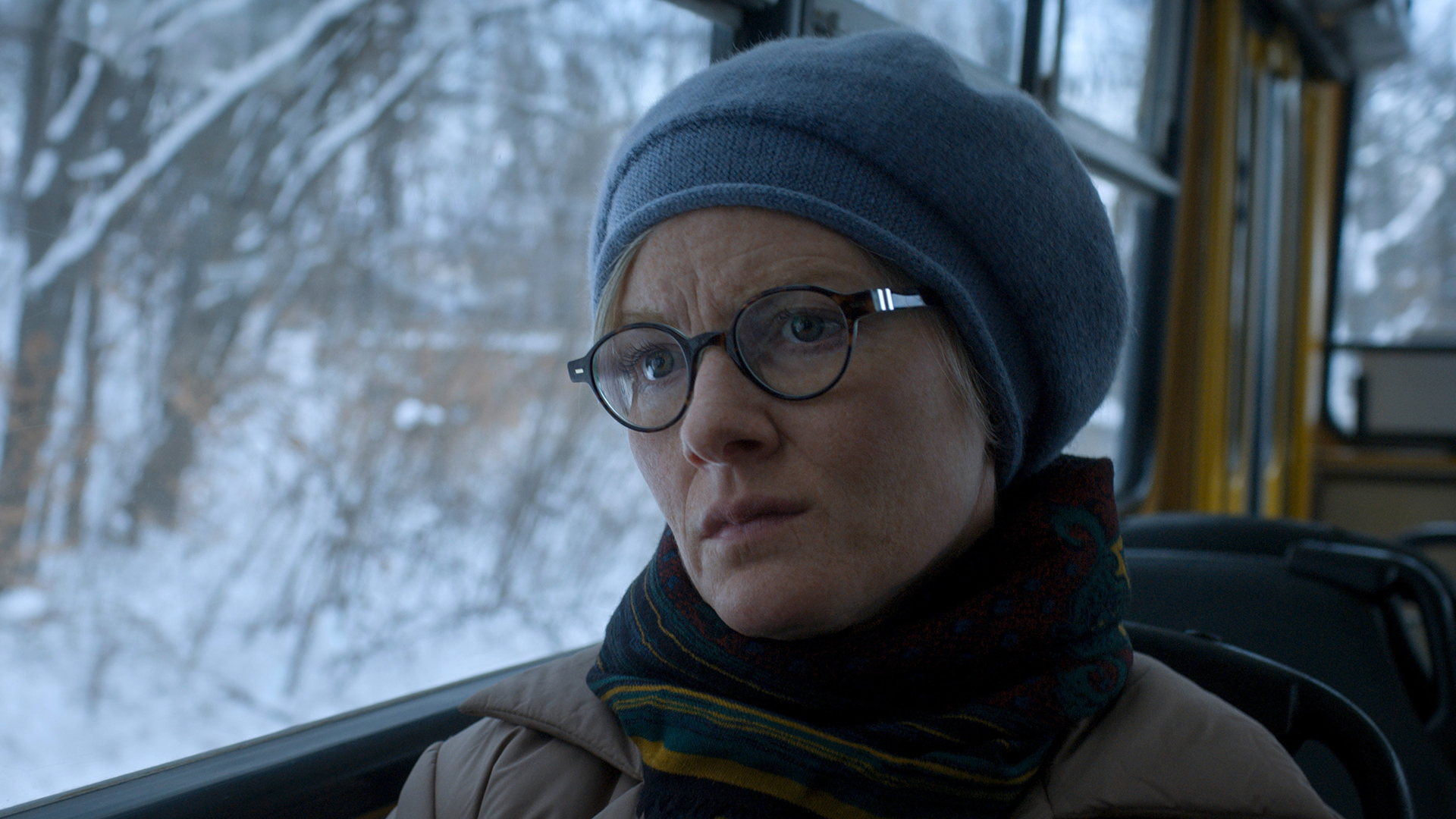
I asked the executive producers which character stories they were most proud of, or found most interesting to shape this season. For Davis, it’s that of Margo Madison (Wrenn Schmidt), former NASA head who we see at the end of season three has fled to Russia. “I love the Margo story, Davos says. “Towards the end of the season, there’s a full circle moment for Margo that I find just fascinating, and such a smart move on the writers’ part.”
“I think she has such a great arc because she’s done the wrong things for the right reasons,” Davis continues. “I love when characters do that, and you’re pulling for them, and you understand why they did what they did—but you wish they didn’t.”
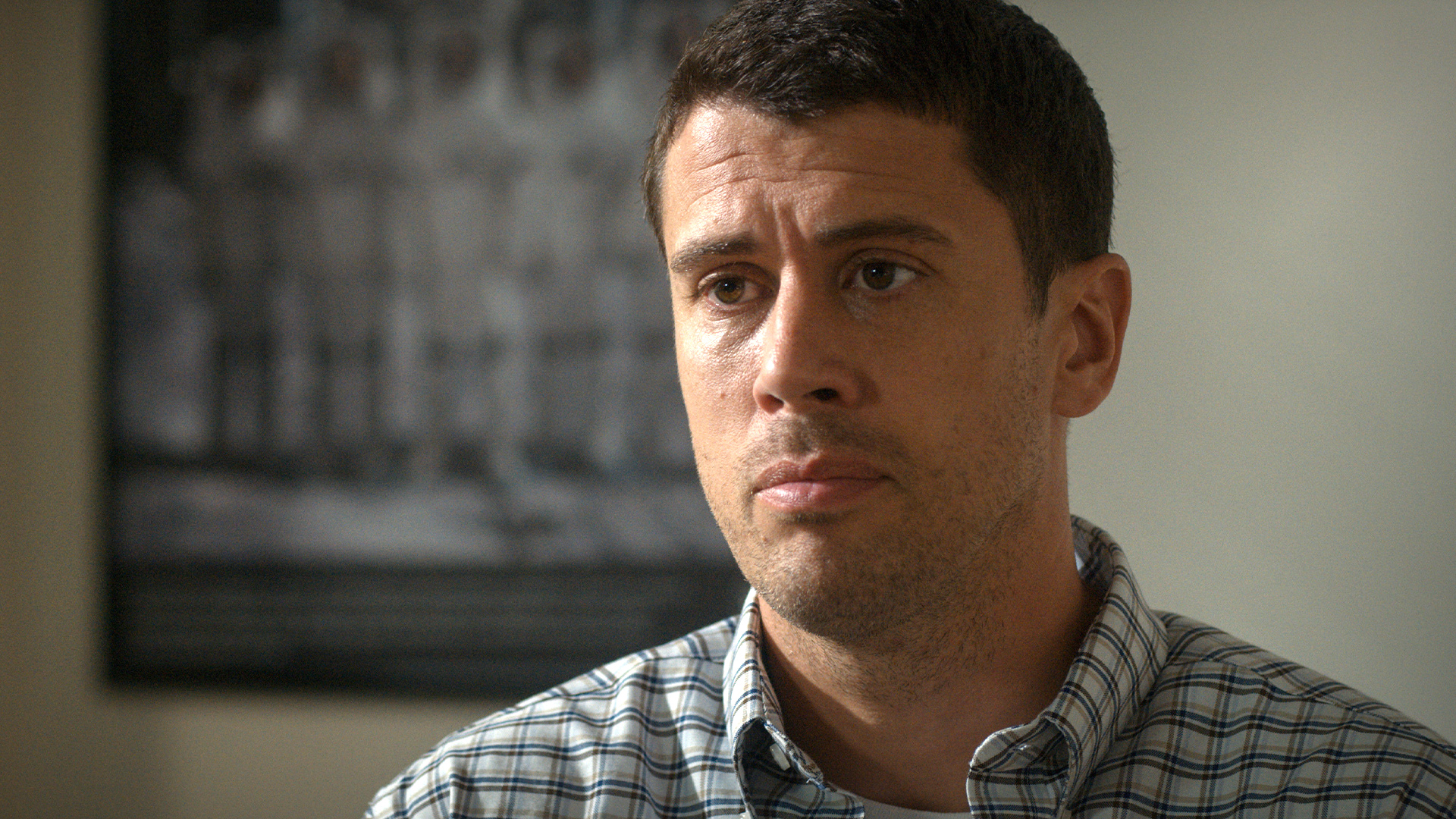
Moore highlights Miles Dale (Toby Kebbell), a new character introduced this season who’s a former offshore oil platform worker who pursues a new job opportunity on Mars. “He represents that civilian world we were talking about earlier,” Moore says, “and seeing how a labour movement happens from his point of view I think is a really interesting story.”
As for the future of the show, as its timeline gets closer to our own, in calendar terms anyway, Moore says “the fun factor doesn’t really go away.”
“Because you’re still trying to tether it to the world that we know. So even when the show catches up with our present day, I think there’s an enormous curiosity about what does today look like? And then, the For All Mankind universe, how is that different? How is it the same? What are the things that have slightly changed? And what are the things that never happened at all? Those are really fun questions to play around with. And I think we’re all looking forward to getting to that place one day.”


















